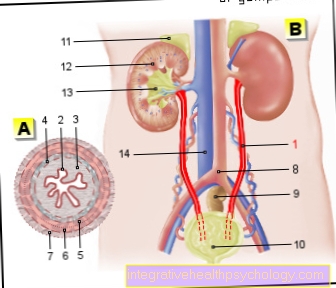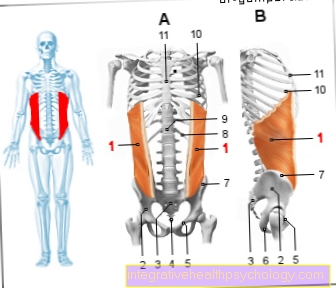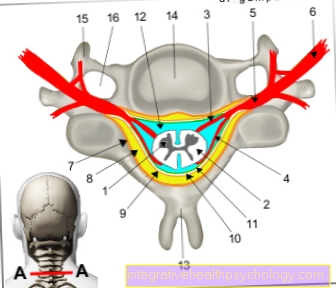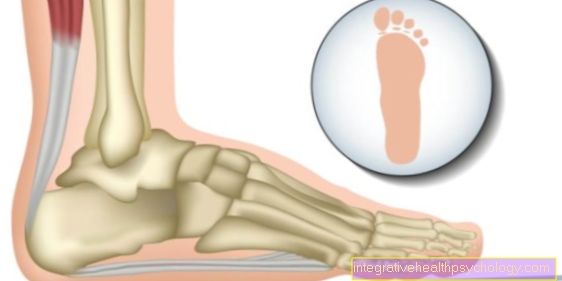Nutritional advice
What is nutritional advice?
In a nutritional consultation, a patient or customer who takes advantage of the advice is advised on questions about nutrition and a healthy lifestyle. The nutritional advice is based on the respective initial situation, objectives and questions of the patient or customer. Nutritional advice can be helpful for various diseases that require a change in lifestyle, such as allergies, intolerance or diabetes mellitus. In addition, counseling can be helpful in achieving weight loss or living a sustainable, healthy lifestyle.

How does a nutritional consultation work?
As a rule, the initial situation is discussed first during a nutritional consultation. The customer is asked to describe his current diet as precisely as possible. Before seeking nutritional advice, it can make sense to take a close look at your eating habits and to make a note of the meal, time and portion size. Unhealthy habits are often noticed here that are uncovered in the context of nutritional advice.
Next, formulate a goal together with the nutritionist. This can be a specific weight loss, a change in diet due to intolerance, or simply a change in diet to a healthier lifestyle. Now a nutrition plan is worked out together. No diet should be formulated here, but a recommendation for a change in diet should be given, which the customer can understand and incorporate into his individual everyday life.
A nutritional counseling service usually oversees a change over the long term, the success is checked at regular appointments or the plan is adjusted as necessary.
Who bears the cost of nutritional advice?
Good, detailed and successful nutritional advice usually takes a lot of time. In addition, it is a recommendation that is individually tailored to the customer. Nutritional advice is therefore a service with a corresponding fee. Follow-up appointments can also increase the cost of nutritional advice. The question of reimbursement for nutritional advice often arises. In principle, there is no general answer to the question. In the event of illness, the advice can usually be partially taken over by the health insurance company. However, this is also based on the statutory health insurance with which the customer is insured. Some reimburse the entire cost, others only a small part. A medical certificate of necessity is required for the grant. In addition, not all nutritional advice is subsidized, depending on how it is certified. Even privately insured persons must find out about a cost subsidy from their health insurance company.
How can I find nutritional advice?
The professional title of nutritionist is not protected by law in Germany, which means that everyone can call themselves a nutritionist and can offer various therapies and counseling. As a rule, you should be well informed beforehand when choosing a provider. Many health insurance companies offer their policyholders a directory of qualified nutritionists. Doctors also usually have contacts and experience with nutritional advice and can make recommendations. Finally, you should read the topic yourself in order to be able to judge the quality of nutritional advice.
How can I assess the quality of nutritional advice?
A customer-friendly, understandable presentation and self-promotion testify to the quality of a service right from the start. Attention should also be paid to the training and additional qualifications of the counselor, since the term “nutritionist” is a professional title that is not protected by law. Since the nutritional advice is an individual recommendation for the customer or patient, intensive contact with them is a main requirement. The consultant should take time for a detailed discussion and ask the customer specifically about his ideas. In addition, the advice should be customer-oriented, i.e. a plan should be drawn up in mutual consultation. A critical examination of the topic of "healthy nutrition" in your own research can also critically evaluate the content of a consultation. It is also advisable to obtain feedback from former customers of the provider in advance. Internet research and recommendation portals can also be used for this purpose.
TCM
Traditional Chinese Medicine (TCM) is considered an alternative or complementary medicine. It has been developing since the 1st millennium BC and is still used today, even in western countries. Some treatment methods have been questioned by scientists because of their ineffectiveness, but they are still widespread. The best known application of TCM is probably acupuncture. Nutrition is also one of the pillars of traditional Chinese medicine, it is understood as the basis for health. Some nutritionists have specialized in the use of TCM, and doctors can also provide training in TCM nutrition advice. Foods are classified according to their so-called thermal effect, organ effect, direction of action, taste properties and other properties. Recommendations for timing based on the "organ clock" are also given. In nutritional advice, the constitution of the customer is dealt with intensively and an individual nutritional concept is drawn up that is intended to promote health and well-being. In general, the ideas of TCM can be matched with the usual dietary recommendations, whereby the concept of Qi is speculative.
Dietary advice for weight loss
There are many reasons to seek nutritional advice. For many overweight people, it can be a decisive step on the way to normal weight. In today's diet jungle it is not easy to find the right way for yourself. Apart from that, if you are very overweight you should change your habits in the long term in order to lose weight in a healthy way, instead of resorting to rigid crash diets and risking the yo-yo effect that occurs later. Nutritional advice can reveal unhealthy habits that have led to obesity for years. Nutritional counseling advises customers, draws up plans together with them and monitors their progress. If weight loss is desired, the nutritionist will create a reduced-calorie plan for the customer. In the best case, he should respond to the customer instead of resorting to the common low-carb-low-fat methods. As a rule, long-term success can be achieved if the person willing to accept the change can make friends and follow it in the long term. Plans with a low calorie deficit tend to be more successful in the long run. Ultimately, the starting situation and objectives of the person willing to lose weight, as well as his personal motivation and discipline, are decisive.
The following topic may also be of interest to you: What type of metabolism am I?
Nutritional advice for fructose intolerance
If one speaks of a fructose intolerance, there is usually a so-called Malabsorption or intestinal fructose intolerance in front. This leads to a disruption of fructose uptake in the intestine and various symptoms, mainly digestive disorders. The much rarer one, but one to be taken very seriously hereditary fructose intolerance, requires a strictly fructose-free diet. The natural compound is mainly found in pome fruit, berries and exotic fruits; fructose is also often added to industrially manufactured foods. In both cases, nutritional advice can be useful in order to identify foods that are supposed to contain fructose and remove them from the diet.
Read more about fructose intolerance and lactose intolerance.
Nutritional advice for histamine intolerance
The consumption of histamine-containing foods leads patients with histamine intolerance to various symptoms, including reddening of the skin, itching, headaches, migraines, rhinitis, asthma, indigestion or even high blood pressure and water retention. Histamine is contained in a large number of different foods, mainly bacterially fermented foods such as hard cheese, smoked meat products, fish and seafood, red wine or chocolate. Fresh foods such as tomatoes, strawberries and spinach also contain histamine. In the case of histamine intolerance, the nutritionist should explain the food to be avoided in detail. Due to the large number of incompatible foods, intensive advice is indicated.
Nutritional advice for type 2 diabetes
Type 2 diabetes mellitus, colloquially referred to as “diabetes”, is a widespread metabolic disease and requires a lifelong adequate lifestyle in order to limit the extent of the secondary diseases and improve the prognosis. Even before drug therapy, nutrition is the most important component in controlling the disease. Those affected are usually looked after by doctors and nutritionists. Especially in advanced stages, when insulin has to be injected, numerous sessions and fine adjustments to the nutrition plan may be necessary to keep the values under control. Already at the preliminary stage, the "metabolic syndrome", nutritional advice should be sought in order to prevent the manifestation of the disease. Weight reduction is one of the primary measures to positively influence the severity of the metabolic syndrome.
Read more about nutrition in diabetes.
Nutritional advice for allergies
In the case of allergies, avoidance of the triggering allergen is essential. Depending on the severity, even the smallest amounts can lead to an allergic reaction and in the worst case to anaphylactic shock. As a rule, the patient receives a detailed list of the foods to be avoided from the attending physician or the allergy outpatient clinic. However, nutritional advice can still be recommended. When presenting, you should have a detailed diagnosis of the allergy or intolerance with you and work out a plan with the advisor.
Find out more about food intolerance.
Nutritional advice for anorexia
Anorexia is a complex clinical picture that usually requires intensive, interdisciplinary and lengthy therapy. Diet assistants and nutritionists also form part of the supervising team. Together with the patient concerned, he or she can draw up nutrition plans and give helpful tips on increasing the amount of calories. Medical and psychological therapy and continuous care are among the cornerstones on the way to recovery.
Nutritional advice for underweight
In addition to anorexia, underweight can have many other causes. Before seeking nutritional counseling to treat underweight, a doctor should first research the underlying cause. Mental illnesses, for example, differ fundamentally in their therapy from hormonal illnesses that can lead to underweight. The nutritionist should also have extensive knowledge of the underlying disease. In consultation with the person concerned, he can then create an individual nutrition plan.
Find out more about malnutrition.





























.jpg)